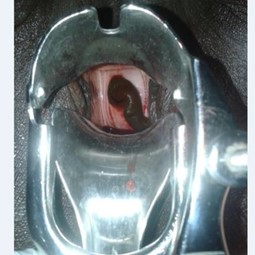What is an induced abortion?
When a procedure is done or medication is taken to end a pregnancy, it is called an induced abortion.
What is a first-trimester abortion?
A first-trimester abortion can be performed up to 13 weeks of pregnancy. Most induced abortions are performed during the first trimester. A first-trimester abortion is one of the safest medical procedures. It can be done safely in a health care provider’s office or clinic.
A first-trimester abortion can be performed with surgery (a procedure called suction curettage) or by taking medication. Suction curettage is the most common type of abortion.average cost of a surgicalabortion in Kenya is 15,000/= kshs.
How is a first-trimester surgical abortion performed in Kenya?
A speculum is inserted into your vagina to hold it open. Your cervix usually is dilated (opened) so that a suction tube can fit through it. Your cervix is dilated either at the time of the procedure or before the procedure. When it is done at the time of the procedure, a series of dilators are inserted into and withdrawn from the cervix to gradually increase the size of the opening. When it is done before the procedure, different techniques can be used. Special dilators called laminaria can be inserted into the cervix. Medications also can be taken by mouth or placed in the vagina to dilate the cervix.
After the cervix is dilated, a thin, plastic tube is inserted into the uterus. It is attached to a suction or vacuum pump, which removes the pregnancy.

What should I expect after a first-trimester surgical abortion?
After the procedure, you will rest in a recovery area. You may be able to go home as soon as an hour afterward. You can expect to have cramping for or 2 days afterward. Bleeding may last for up to 2 weeks.
How is a first-trimester medical abortion performed?
A first-trimester medical abortion does not require surgery or anesthesia, but multiple visits to the health care provider are needed. Some drugs that induce abortion are taken by mouthe.g misoprostol,cytotec,isovent,misoclearand misoklara, whereas others are inserted into the vagina.
Sometimes the drugs can be taken at home
What should I expect during a medical abortion?
The drugs used in a medical abortion will cause bleeding that is much heavier than a menstrual period. There may be severe cramping. Nausea, vomiting, fever, and chills may occur. You can take over-the-counter pain medication. Your health care provider also may prescribe stronger pain medication if needed. It can take several days or weeks for the abortion to be complete.
Do I need to follow up with my health care provider after having a medical abortion?
You will need to see your health care provider within 2 weeks to make sure the abortion is complete. If you are still pregnant after taking the medication, you may be given another dose of medication or you may need to have a surgical abortion. Continuing the pregnancy is not recommended because the drugs used for medical abortion are known to cause severe birth defects with methotrexate and misoprostol being the biggest culprits.
What is a second-trimester abortion?
A second-trimester abortion is one that takes place after 13 weeks of pregnancy. A second-trimester abortion can be performed with a surgical procedure called dilation and evacuation (D&E) or with medication (medical abortion). In the second trimester, a surgical abortion has fewer complications than a medical abortion. Most women who have a second-trimester abortion have a surgical abortion.
How is a second-trimester surgical abortion performed?
Dilation and evacuation usually can be done as outpatient surgery, meaning that you can go home the same day. You may need to visit your health care provider the day before to take medications or start having your cervix dilated. Your cervix is dilated with dilators, laminaria, or medication. General anesthesia or regional anesthesia may be used for pain relief. The fetus is removed through the vagina. Suction is used to remove any remaining tissue.
What should I expect after a second-trimester surgical abortion?
Soreness or cramping may occur for 1 or 2 days after the procedure. Bleeding may last for up to 2 weeks.
How is a second-trimester medical abortion performed in Kenya?
Second-trimester medical abortion usually is done in a hospital or clinic where you can be monitored throughout the procedure. The medications used to cause the abortion may be put in your vagina, taken by mouth, injected into your uterus, or given through an intravenous (IV) line. These drugs cause the uterus to contract and expel the fetus. Drugs to relieve pain usually are given. Regional anesthesia often is an option.
What should I expect after a second-trimester medical abortion?
The drugs usually cause the abortion to begin within 12 hours. The abortion usually is complete within 12–24 hours, although the timing can be unpredictable. The drugs may cause side effects such as nausea, fever, vomiting, and diarrhea. Medications to manage these side effects can be given as needed.
What complications can occur with an abortion?
Abortion is a low-risk procedure. Major complications that require hospitalization are rare. The risk of death from abortion is lower than 1 in 100,000 but increases slightly with every week of pregnancy. The risk of dying from giving birth is 14 times greater than the risk of dying from an early abortion. But as with any medical procedure, problems sometimes can occur. These can include the following:
- Incomplete abortion—If the abortion is incomplete, a follow-up procedure may be needed. This is more likely to happen with a medical abortion.
- Infection—Your health care provider will prescribe antibiotics to prevent this. Antibiotics also can be used to treat an infection if one occurs.
- Heavy bleeding—Some bleeding after an abortion is normal. Bleeding is rarely heavy enough to require a blood transfusion.
- Injury to the uterus and other organs—The risk of these complications occurring during a second-trimester abortion is less than 1 in 1,000. The risk increases with the length of the pregnancy.
What signs and symptoms should prompt me to contact my health care provider after having an abortion?
If any of the following occur, call your health care provider:
- Severe abdominal or back pain.
- Heavy bleeding (soaking two maxipads per hour for 2 consecutive hours).
- Foul-smelling discharge.
- A fever (above 100.4°F).
What complications can occur with an When should I start using birth control after an abortion?
You can get pregnant soon after an abortion, even before your period returns. Most birth control methods can be started on the same day of an abortion. However, you need to wait about 6 weeks after a second-trimester abortion to use a cervical cap or a diaphragm to give the cervix time to return to its normal size.
Are there any long-term health effects from having an abortion?
Some women worry that having an abortion could affect their future health. Most health care providers agree that one abortion does not affect your ability to get pregnant or the risk of future pregnancy complications. Recent studies have shown no link between abortion and breast cancer. For women with an unplanned pregnancy, there is no difference in the risk of depression or other mental health problems between those who have an abortion and those who have the baby.

